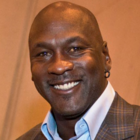Cuba , officially the Republic of Cuba , is a country comprising the island of Cuba as well as Isla de la Juventud and several minor archipelagos. Cuba is located in the northern Caribbean where the Caribbean Sea, Gulf of Mexico and Atlantic Ocean meet. It is east of the Yucatán Peninsula (Mexico), south of both the U.S. state of Florida and the Bahamas, west of Haiti and north of both Jamaica and the Cayman Islands. Havana is the largest city and capital; other major cities include Santiago de Cuba and Camagüey. The area of the Republic of Cuba is (without the territorial waters). The island of Cuba is the largest island in Cuba and in the Caribbean, with an area of and the second-most populous after Hispaniola, with over 11 million inhabitants. The territory that is now Cuba was inhabited by the Ciboney Taíno people from the 4th millennium BC until Spanish colonization in the 15th century. From the 15th century, it was a colony of Spain until the Spanish–American War of 1898, when Cuba was occupied by the United States and gained nominal independence as a de facto United States protectorate in 1902. As a fragile republic, in 1940 Cuba attempted to strengthen its democratic system, but mounting political radicalization and social strife culminated in a coup and subsequent dictatorship under Fulgencio Batista in 1952. Open corruption and oppression under Batista's rule led to his ousting in January 1959 by the 26th of July Movement, which afterwards established communist rule under the leadership of Fidel Castro. Since 1965, the state has been governed by the Communist Party of Cuba. The country was a point of contention during the Cold War between the Soviet Union and the United States, and a nuclear war nearly broke out during the Cuban Missile Crisis of 1962. Cuba is one of a few extant Marxist–Leninist socialist states, where the role of the vanguard Communist Party is enshrined in the Constitution. Independent observers have accused the Cuban government of numerous human rights abuses, including short-term arbitrary imprisonment. Under Castro, Cuba was involved in a broad range of military and humanitarian activities in Guinea-Bissau, Syria, Angola, Algeria, South Yemen, North Vietnam, Laos, Zaire, Iraq, Libya, Zanzibar, Ghana, Equatorial Guinea, Eritrea, Somalia, Ethiopia, Congo-Brazzaville, Sierra Leone, Cape Verde, Nigeria, Benin, Cameroon, Zimbabwe and Mozambique. Cuba sent more than 400,000 of its citizens to fight in Angola (1975–91) and defeated South Africa's armed forces in conventional warfare involving tanks, planes, and artillery. Cuban intervention in Angola contributed to the downfall of the apartheid regime in South Africa. Culturally, Cuba is considered part of Latin America. It is a multiethnic country whose people, culture and customs derive from diverse origins, including the aboriginal Taíno and Ciboney peoples, the long period of Spanish colonialism, the introduction of African slaves and a close relationship with the Soviet Union in the Cold War. The majority of the population of Cuba is 51% mulatto (mixed-race Spanish/African), 37% white, 11% black and 1% Chinese. Cuba is a sovereign state and a founding member of the United Nations, the G77, the Non-Aligned Movement, the African, Caribbean and Pacific Group of States, ALBA and Organization of American States. It has currently one of the world's only planned economies, and its economy is dominated by the tourism industry and the exports of skilled labor, sugar, tobacco, and coffee. According to the Human Development Index, Cuba has high human development and is ranked the eighth highest in North America, though 72nd in the world in 2019. It also ranks highly in some metrics of national performance, including health care and education. It is the only country in the world to meet the conditions of sustainable development put forth by the WWF.
